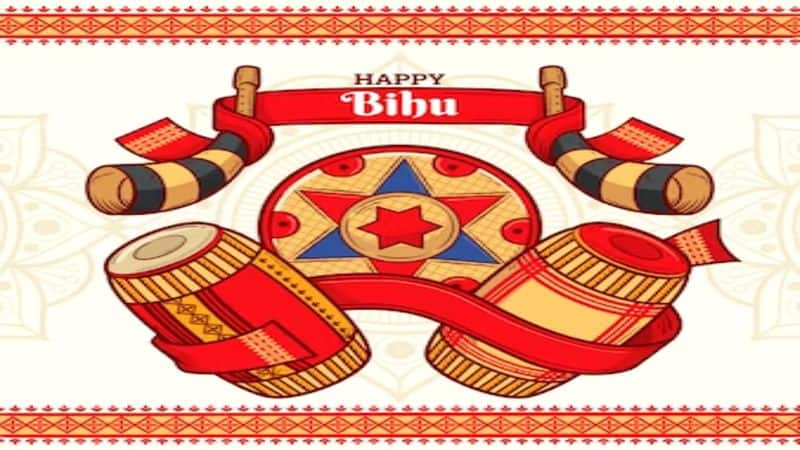The celebration is celebrated with a bright array of rituals, lively gatherings, and traditional food and attire as the people of Assam welcome the new year.
Bohag Bihu, also known as Rongali Bihu, is a major event in Assam that ushers in the harvest season and marks the start of the Assamese New Year. The celebration is commemorated with a colorful array of customs, vibrant gatherings, and traditional cuisine and attire.
This year's Bohag Bihu will be held with great pomp and fanfare on Sunday, April 14. The event runs for seven days, with each day having its own meaning, ceremonies, and customs.
History of Bohag Bihu:
Bohag Bihu dates back to ancient times, when it was celebrated as a fertility festival that heralded the arrival of spring. The celebration is strongly rooted in Assam's agricultural heritage and is inextricably related to the harvest cycles. Bohag Bihu is largely an agrarian event that commemorates the start of the Assamese New Year and the entrance of spring, a critical period for the farming community.
How is Bohag Bihu celebrated?
Bohag Bihu is a week-long spectacle featuring traditional ceremonies, magnificent feasts, and intriguing cultural displays.
Rituals: To begin the event, people rise early, take ceremonial baths with auspicious pastes, put on new clothes, and seek blessings from their elders. Each of the seven days has its own set of traditions, which add richness to the holiday celebration.
Significance of the Festival:
Bohag Bihu, which marks the beginning of the planting season, is a lively event that is deeply ingrained in Assamese tradition. During the festivities, traditional musical instruments like as dhol, pepa, gogona, toka, and taal fill the air with enchanting sounds, accompanying young men and women in enthusiastic dances. While Bohag Bihu is particularly significant in Assam, similar spring harvest festivals are held throughout India.
Also Read: Ambedkar Jayanti 2024: 9 incredible facts about Dr BR Ambedkar
Last Updated Apr 14, 2024, 10:33 AM IST











![Salman Khan sets stage on fire for Anant Ambani, Radhika Merchant pre-wedding festivities [WATCH] ATG](https://static-ai.asianetnews.com/images/01hr1hh8y86gvb4kbqgnyhc0w0/whatsapp-image-2024-03-03-at-12-24-37-pm_100x60xt.jpg)
![Pregnant Deepika Padukone dances with Ranveer Singh at Anant Ambani, Radhika Merchant pre-wedding bash [WATCH] ATG](https://static-ai.asianetnews.com/images/01hr1ffyd3nzqzgm6ba0k87vr8/whatsapp-image-2024-03-03-at-11-45-35-am_100x60xt.jpg)



